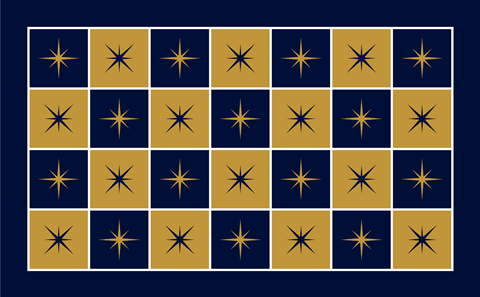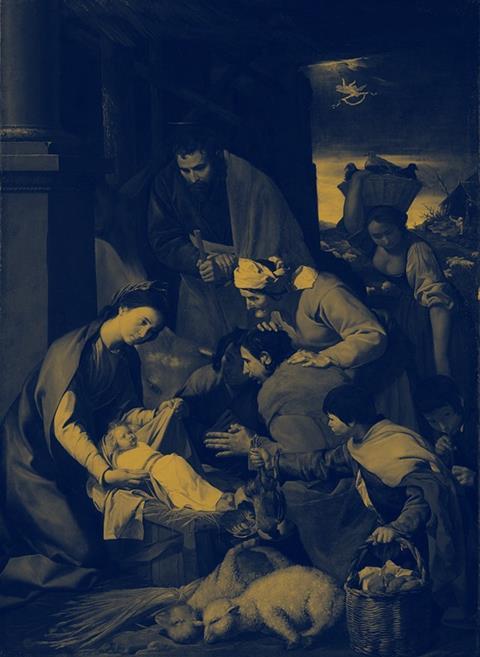Recharge is a Bible study just for you, to nurture your own relationship with God. So, before you even look at the rest of the magazine, take some time out to focus on him. Grab a coffee, sit, breathe and read.

One of the greatest gifts of the Christian tradition is the liturgical calendar. Time, the day of the Sabbath, was the first thing God blessed (Genesis 2:3). This was not a day God needed, but a way of starting the seven-step metronome that beats through the seasons set by God and intertwines us into the order of creation.
The liturgical calendar seeks to follow that rhythm and bring us into it through daily prayer, weekly sabbath and annual seasons of fasting and feasting.
As such, Christians have long marked Advent. Advent is a season of fasting and prayer, in which we can remember the promises and prophecies that point to Jesus’ arrival at Christmas.
Advent is a liminal space that allows us to sit in the gloom of the long winter nights and look forward to the coming of the light of Christ. Advent may not be a part of your tradition, but I want us to explore what it has to offer this year. And I would like to do so using the words of my favourite advent hymn, ‘O come, O come, Emmanuel’.
O come, O come, Emmanuel
Although the version most of us would be familiar with dates to 1861, this song has its roots deeply embedded in the Christian tradition. In the 6th century, monastic life, songs or antiphons were sung at evening prayer.
In the seven days running up to Christmas, their rhythm drew sustenance from the Magnificat (Luke 1:46-55), and the Veni Emmanuel was a way of singing in the coming Messiah proclaimed by his mother.
One Anglican priest, by the name of John M Neale, took the Latin of the Veni Emmanuel and translated it into the words we might be familiar with today. The tune we know dates back to the 12th century. As we reflect on the words of this hymn, rooted in the worship of the saints, I hope we can draw sustenance for our worship this Advent.
O come, O come, Emmanuel,
And ransom captive Israel;
That mourns in lonely exile here,
Until the Son of God appear.
Rejoice! Rejoice! Emmanuel
Shall come to thee, O Israel.
‘O come’ was originally translated as ‘Draw nigh’. This is not meant as a command that we hope to make God obey, but a yearning to be closer to God. ‘Emmanuel’ means ‘God with us’, “God moved into the neighbourhood,” as Eugene Peterson translates it in The Message.
The hymn reminds us that the motion of this movement began when God stepped closer to us by becoming human through the birth of Jesus that first Christmas. The yearning reminds us that our place is not completely with God until his return.

O come, Thou Rod of Jesse, free
Thine own from Satan’s tyranny;
From depths of hell Thy people save,
And give them victory o’er the grave.
Rejoice! Rejoice! Emmanuel
Shall come to thee, O Israel.
This second verse points us to the promises and prophecies of Isaiah, in which the Root of Jesse is the one upon whom the Spirit of God will rest (Isaiah 11:2). This Root of Jesse is said to usher in a new order to all creation, where the wolf will lie with the lamb (Isaiah 11:6) and all the nations will gather under his banner (Isaiah 11:10).
This verse stands as a prayer not just for ourselves, but for all of the world and all creation to come under the new order, so that all will be free from pain, war, suffering, death and loss.
O come, Thou Dayspring, come and cheer,
Our Spirits by Thine Advent here;
Disperse the gloomy clouds of night,
And death’s dark shadows put to flight.
Rejoice! Rejoice! Emmanuel
Shall come to thee, O Israel.
‘Dayspring’ is a translation taken from the King James Version (KJV) of the Bible. It was a common word for sunrise. The birth of the Son is like the dawn of the sun, ushering in an end to the darkness and removing the shadows of death. Dayspring is the word used in Luke 1:78 in the KJV, translating Zechariah’s song over his son John the Baptist, who would point the way to Jesus.
The light shining in the darkness mirrors John 1, who describes Jesus as the true light that gives light to the world (John 1:9). This verse of the hymn points us and everyone to the risen Son, just like Zechariah and John the Baptist did.
O come, Thou Key of David, come
And open wide our heavenly home;
Make safe the way that leads on high,
And close the path to misery.
Rejoice! Rejoice! Emmanuel
Shall come to thee, O Israel.
The phrase ‘Key of David’ is mentioned in Revelation, which in turn quotes Isaiah (Revelation 3:7; Isaiah 22:22). Jesus’ birth as a tiny fragile baby is a fascinating contrast to the imagery of him in Revelation as the one who holds the keys to life and death. Baby Jesus may seem fragile and small, and his choice to step fully into human life as such is good news because it makes possible the defeat of death.
His journey from birth to death to resurrection looks precariously buffeted by kings like Herod and governors like Pontius Pilate. But Revelation 3:7 reminds us that Jesus has been and always will be in charge.
O come, O come, thou Lord of Might
Who to Thy tribes, on Sinai’s height,
In ancient times didst give the law,
In cloud, and majesty, and awe.
Rejoice! Rejoice! Emmanuel
Shall come to thee, O Israel.
This final verse weaves the Christian story in the New Testament to the story of the Old. It reminds us that that the same God who appeared to Moses on Sinai is the one who appears as Jesus. Jesus came to complete the law, not blow it out of the water (Matthew 5:17).
Just as Abraham and the nation of Israel were blessed so that through them others might be blessed (Genesis 12:2-3; Exodus 19:5-6), we are blessed by God to gather all to God.
TAKEAWAY
This old hymn can remind us of the purpose behind the season of Advent. Here we hold together the promises of the Old Testament with their fulfilment in the New. Here we hold the darkness of living in a fallen world with the light of the one Jesus will bring with his return. Here we hold the image of a tiny baby with the creator of the world.
PRAYER
O come, O come, Emmanuel.

































